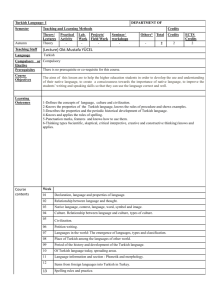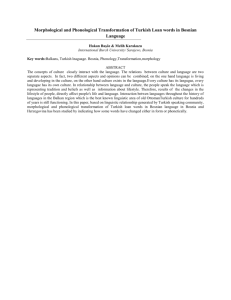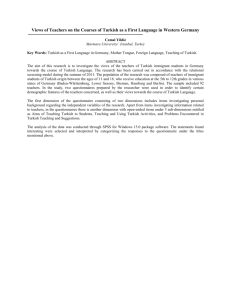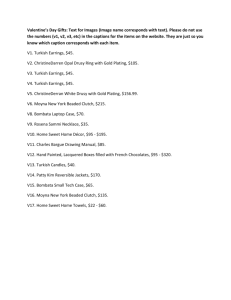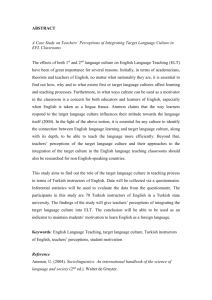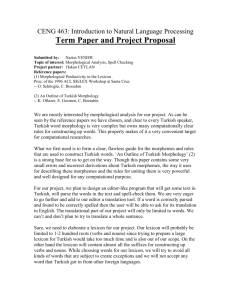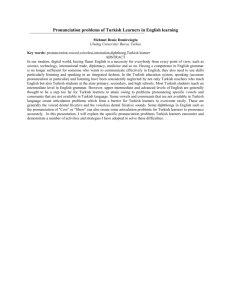Turkish folk music in Ghent: musical knowledge in a diaspora context
advertisement
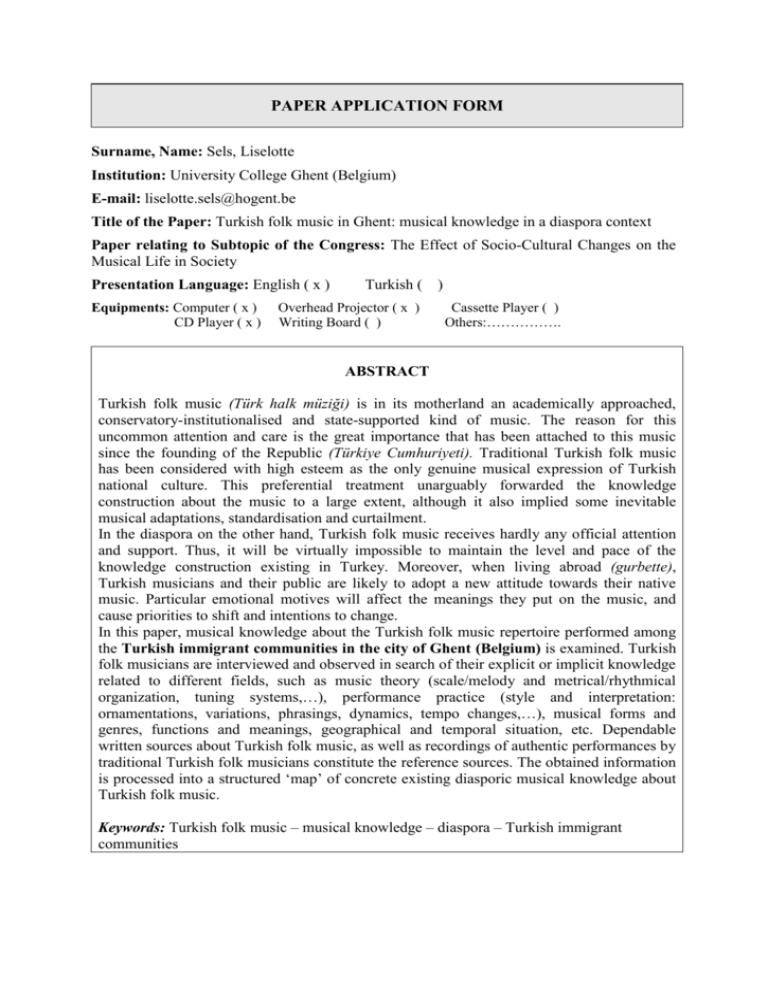
PAPER APPLICATION FORM Surname, Name: Sels, Liselotte Institution: University College Ghent (Belgium) E-mail: liselotte.sels@hogent.be Title of the Paper: Turkish folk music in Ghent: musical knowledge in a diaspora context Paper relating to Subtopic of the Congress: The Effect of Socio-Cultural Changes on the Musical Life in Society Presentation Language: English ( x ) Equipments: Computer ( x ) CD Player ( x ) Turkish ( ) Overhead Projector ( x ) Writing Board ( ) Cassette Player ( ) Others:……………. ABSTRACT Turkish folk music (Türk halk müziği) is in its motherland an academically approached, conservatory-institutionalised and state-supported kind of music. The reason for this uncommon attention and care is the great importance that has been attached to this music since the founding of the Republic (Türkiye Cumhuriyeti). Traditional Turkish folk music has been considered with high esteem as the only genuine musical expression of Turkish national culture. This preferential treatment unarguably forwarded the knowledge construction about the music to a large extent, although it also implied some inevitable musical adaptations, standardisation and curtailment. In the diaspora on the other hand, Turkish folk music receives hardly any official attention and support. Thus, it will be virtually impossible to maintain the level and pace of the knowledge construction existing in Turkey. Moreover, when living abroad (gurbette), Turkish musicians and their public are likely to adopt a new attitude towards their native music. Particular emotional motives will affect the meanings they put on the music, and cause priorities to shift and intentions to change. In this paper, musical knowledge about the Turkish folk music repertoire performed among the Turkish immigrant communities in the city of Ghent (Belgium) is examined. Turkish folk musicians are interviewed and observed in search of their explicit or implicit knowledge related to different fields, such as music theory (scale/melody and metrical/rhythmical organization, tuning systems,…), performance practice (style and interpretation: ornamentations, variations, phrasings, dynamics, tempo changes,…), musical forms and genres, functions and meanings, geographical and temporal situation, etc. Dependable written sources about Turkish folk music, as well as recordings of authentic performances by traditional Turkish folk musicians constitute the reference sources. The obtained information is processed into a structured ‘map’ of concrete existing diasporic musical knowledge about Turkish folk music. Keywords: Turkish folk music – musical knowledge – diaspora – Turkish immigrant communities


